- Class of 2024 AIAA Associate Fellows Inducted
- Making an Impact: International Student Conference
- Making an Impact: K-12 Educator Workshop at AIAA SciTech Forum
- Students Experienced AIAA SciTech Forum
- AIAA Standards
- AIAA Fellow Orlik-Rückemann Died in August 2019
- AIAA Associate Fellow Sabatella Died in June 2021
- AIAA Associate Fellow Wyckoff Died in December 2023
- AIAA Fellow Culick Died in December
- AIAA Fellow Gottzein Died in December 2023
Bulletin
AIAA Associate Fellows Class of 2024 AIAA Associate Fellows Inducted
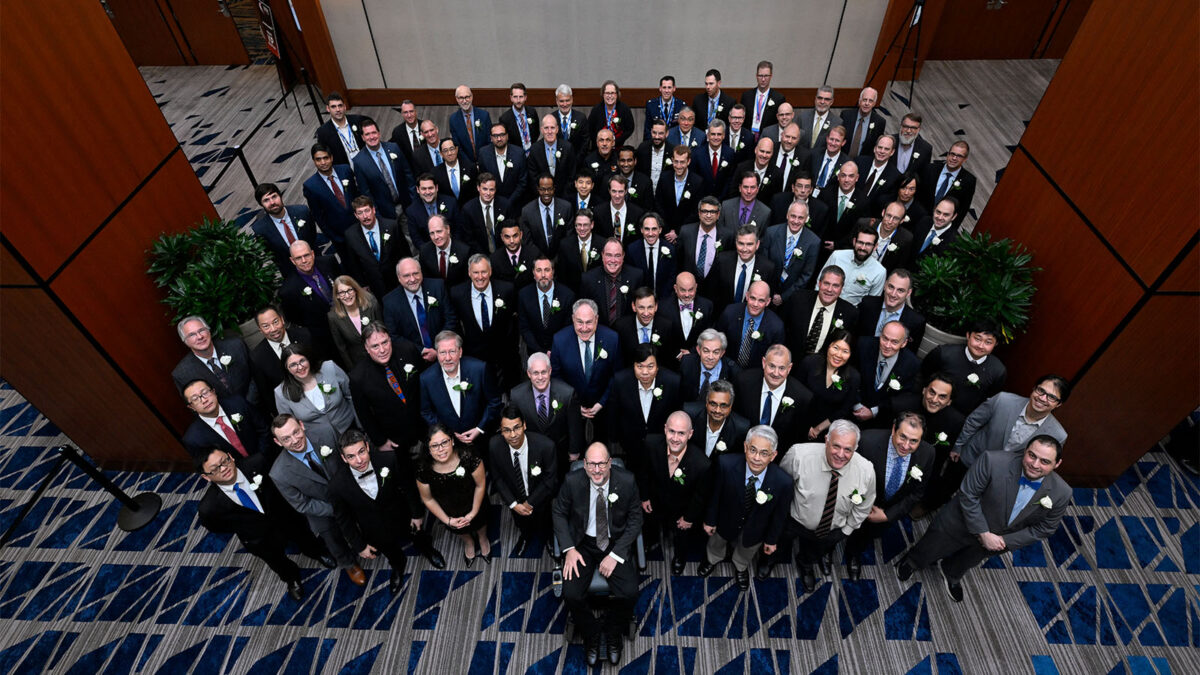
The Class of 2024 AIAA Associate Fellows were inducted at a ceremony on 11 January at AIAA SciTech Forum, Orlando, FL.
AIAA Foundation Making an Impact: International Student Conference
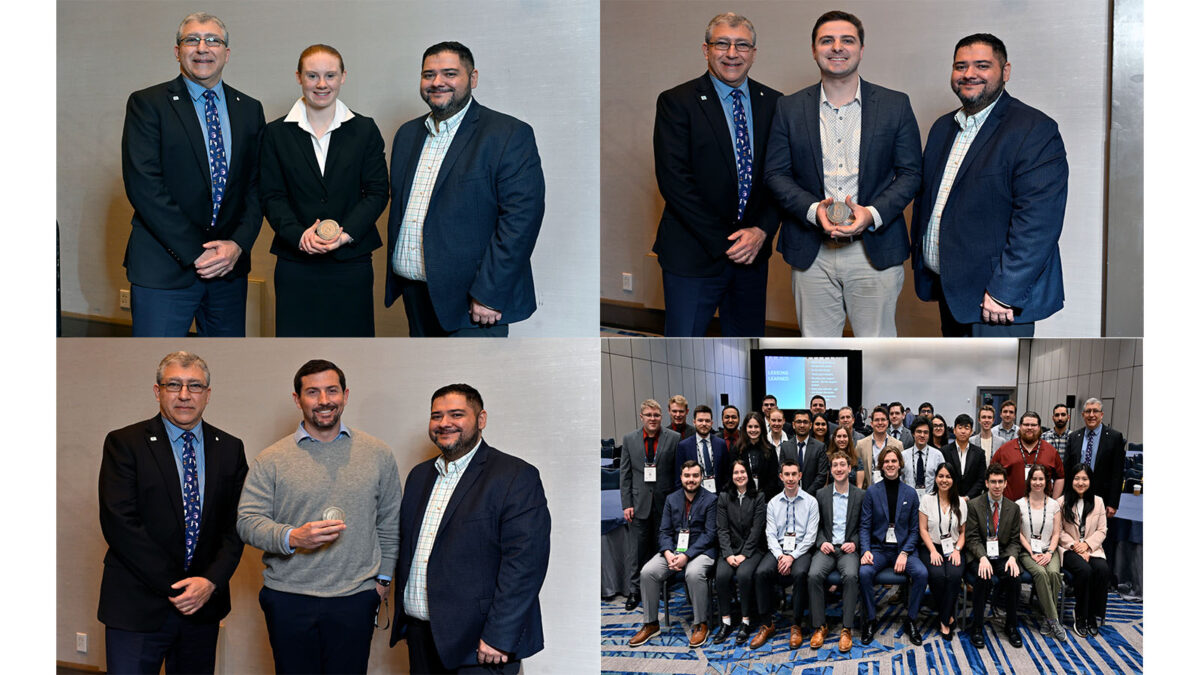
The AIAA International Student Conference took place on 8 January in conjunction with AIAA SciTech Forum. Students who won first place at one of the 2023 AIAA Regional Student Conferences presented their papers at this professional technical conference, which offers students a chance to showcase their original research at an event where they can also network with potential employers and colleagues. The winners were announced at an awards ceremony on 9 January, where NASA Langley Research Center Deputy Director of Research Jill Prince provided the keynote address to the student attendees.
Papers were judged by volunteer professional members with years of experience in the industry. The following papers were declared winners:
Undergraduate Category
“Development and Testing of a Stereo Photogrammetry System for Multiaxis Optical Tracking of Free-Flight Models” by Georgia Warren, University of New South Wales (Canberra, ACT, Australia).
Master’s Category
“Development of a Potassium Permanganate Catalyst-Infused Fuel Gran for Hydrogen Peroxide Hybrid Thruster Ignition Enhancement” by Ryan Thibaudeau, Utah State University (Logan, UT, U.S.)
Team Category
“Aerodynamic Evaluation of Longitudinal and Lateral Directional Stability Coupling on the NASA Orion Crew Module” by Patrick Koenig, Joseph Roy, Lucas Yantis, and Casey Fagley, United States Air Force Academy (U.S. Air Force Academy, CO, U.S.)
AIAA thanks AIAA Foundation donors for their generous support of the International Student Conference Program.
Dates for the 2024 Regional Student Conferences can be found at aiaa.org/studentconferences. For more information about the regional student conferences, contact Lindsay Mitchell at lindsaym@aiaa.org or 703.264.7502.
AIAA Foundation Making an Impact: K-12 Educator Workshop at AIAA SciTech Forum
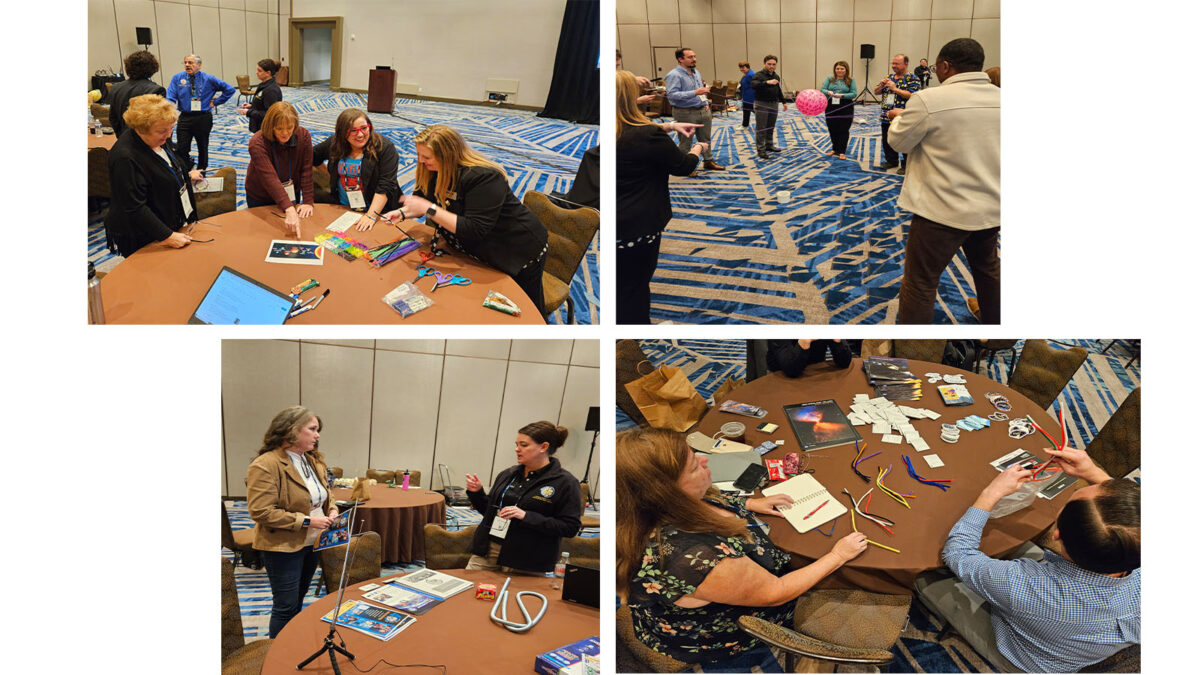
On 11 January, AIAA SciTech Forum featured a K-12 Educator Workshop organized by the AIAA STEM K–12 Outreach Committee. For the second year, teachers were invited to gather, network, and hear firsthand from inspiring speakers in their field. Sessions included nationally recognized, award-winning classroom educators Lisa Stewart (gifted education teacher from Texas), Melissa Sleeper (science teacher from Florida), and Jackie Blumer (STEM teacher from Missouri). Frank Bauer (executive director) and Tanya Anderson (director of education) from Amateur Radio on the International Space Station (ARISS) also participated, as did Charles Svoboda, an engineer and educator who spoke on his STEM outreach work in the Democratic Republic of the Congo, and Kristen Yip (education manager) from Blue Origin’s Club for the Future.
Topics ranged from how to organize a Space Night for an elementary school, to overviews of opportunities and resources for aerospace instruction and inspiration, to how to have your students speak directly with the International Space Station via radio. Low-cost hands-on activities were demonstrated and available for attendees to try out for themselves, and discussion topics included best practices and advice on navigating grants, scholarships, and educational tools from AIAA and other organizations. The recurring theme of the day – echoed in every presenter’s words – was that for the future of space and aviation to thrive and grow, we need the next generation to be prepared and passionate about STEM. To be prepared and passionate, they need engaging STEM experiences today that are hands-on and relevant to the real world.
AIAA Foundation Students Experienced AIAA SciTech Forum
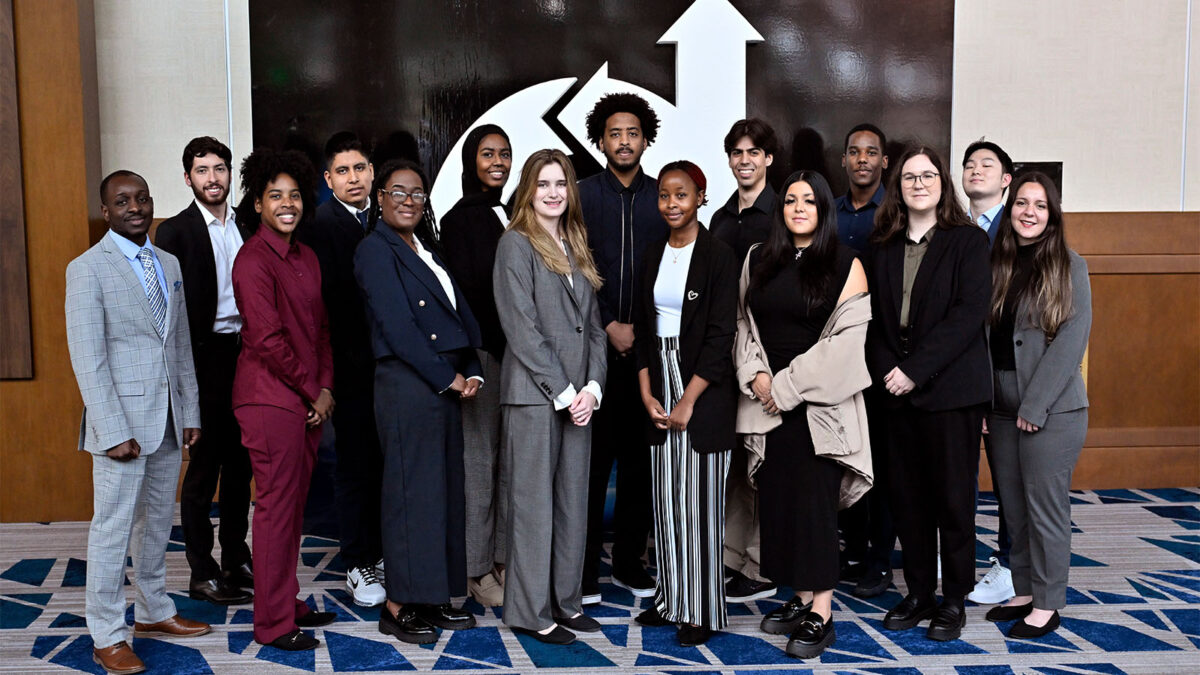
AIAA SciTech Forum welcomed 15 Diversity Scholars thanks to generous sponsorship from The Boeing Company. The AIAA Diversity Scholarship was created to provide networking and engagement opportunities at forums to students from backgrounds that are traditionally underrepresented in the industry. Learn more about the program.
AIAA Announcements AIAA Standards
The AIAA Standards Steering Committee has approved the project for AIAA S-141, Standard for Code Verification in Computational Fluid Dynamics. This project has been approved as a revision project for the previously published AIAA R-141-2021, Recommended Practice for Code Verification in Computational Fluid Dynamics, and is also undergoing public review. The AIAA Computational Fluid Dynamics (CFD) Committee on Standards is responsible for developing this Standard. The document is for developers and users of CFD codes, their managers, and those who make decisions based on results from CFD simulations. It provides the relevant definitions, theoretical background, and computational procedures. It also provides consensus general procedures for code verification and the requirements for code verification. For information on how to participate in this project or to obtain a copy for review, contact Nick Tongson. Public review deadline: 13 February 2024.
The AIAA Standards Steering Committee has approved the revision project for AIAA S-110-2005, Standard: Space Systems – Structures, Structural Components, and Structural Assemblies. The AIAA Structures Committee on Standards is responsible for developing this revision as AIAA S-110A, Space Systems – Structures, Structural Components, and Pressurized Structures. This standard establishes baseline requirements for the design, test, qualification, and acceptance of spaceflight structures and pressurized structures. For more information on how to participate in this project, please contact Nick Tongson.
Obituary AIAA Fellow Orlik-Rückemann Died in August 2019
Kazimierz Orlik-Rückemann died on 10 August 2019. He was 94 years old.
Orlik-Rückemann received his Ph. D. in Aeronautical Engineering from the Royal Institute of Technology (KTH) in Stockholm, Sweden. He was appointed head of the High Speed Aerodynamics Laboratory at the National Research Council of Canada in 1958 and successfully led his organizations until his retirement from the NRC in 1991. He served on many international scientific organizations and is known worldwide for his lasting contributions to aeronautical sciences. He received the 1986 AIAA Ground Testing Award.
Obituary AIAA Associate Fellow Sabatella Died in June 2021
Joseph “Joe” Sabatella died on 20 June 2021. He was 89 years old.
Sabatella graduated from Rensselaer Polytechnic Institute in 1954 with a degree in Aeronautical Engineering, followed by a Master’s degree. A member of the Air Force Reserves while in college, he then served two years of active duty.
Sabatella began his career at Pratt & Whitney Aircraft in East Hartford, CT. In 1976, he moved to Palm Beach County to work in Pratt’s southern facility. He retired in 1992.
Obituary AIAA Associate Fellow Wyckoff Died in December 2023
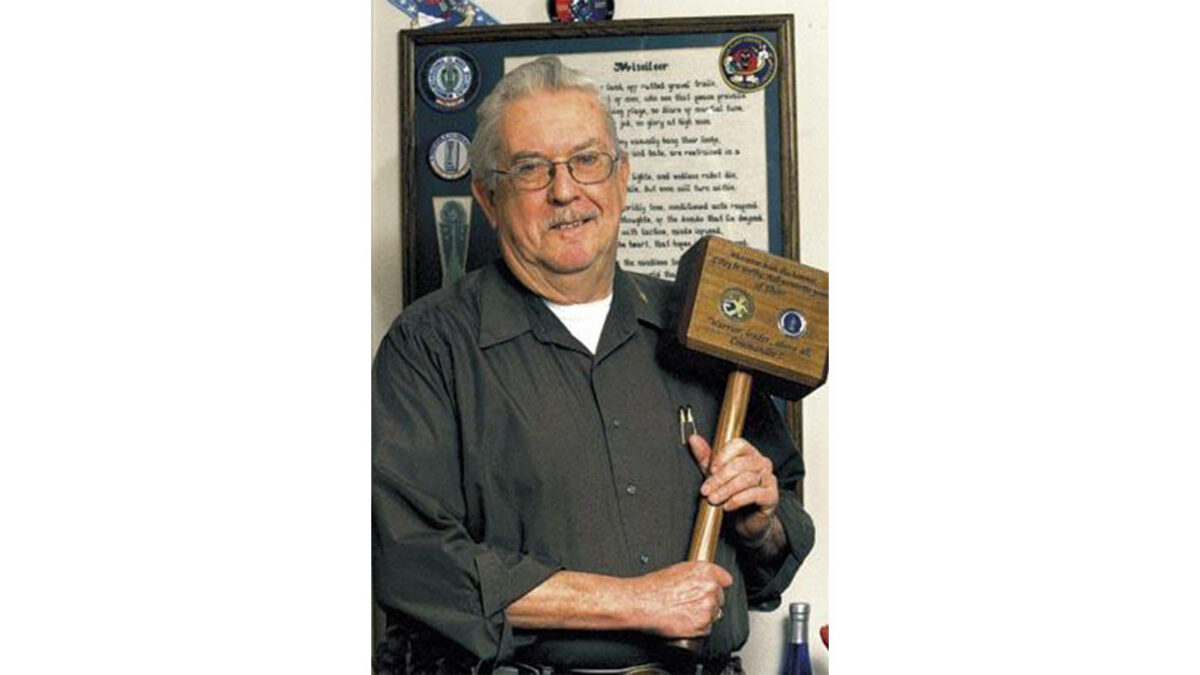
Major Robert A. Wyckoff died on 2 December 2023. He was 83 years old.
Wyckoff’s life was changed by a typo. As a graduate of Colgate University with a degree in English Literature, he chose to enlist in the United States Air Force as the Cold War was heading up. He abbreviated his degree as “Eng,” which was misinterpreted as “Engr” by the Air Force, and he was assigned to an engineering position in ballistic missiles. He was dispatched to Malmstrom Air Force Base, MT, as a combat crew commander, missileer. While at Malstrom, he earned a master’s degree in Systems Management from USC. He continued his missileer career at Randolph AFB, TX, and Vandenberg AFB, CA.
After retiring from the Air Force as a Major in 1982, Wyckoff worked for base contractors at Vandenberg. He was especially proud of being a liaison between the contractors and the military, contributing to the space shuttle program, and being an honorary squadron commander for the 532nd strategic missile training squadron. He wrote over 100 poems that blended technical knowledge with emotional insight into the demands of military life. His most well-known poem, “Missileer,” is still used today in training classes at Vandenberg Space Force Base.
Wyckoff became an avid private pilot and flew the family’s 1948 Chiquita Bonanza. Through the years, Wyckoff remained active in the local communities, both civilian and military. He served as an Airport Commissioner for Lompoc Airport, and was also a volunteer and commander of the Santa Barbara County Aerosquadron. Wyckoff was very involved with AIAA at the section level and served as the Chair of the AIAA Vandenberg Section. He volunteered for decades to support the section’s STEM programs and Science Fair, which earned him the AIAA STEM K-12 Outreach Award in 2003 and 2007, as well as third place in 2010. He was awarded the AIAA Sustained Service Award in 2006.
Obituary AIAA Fellow Culick Died in December
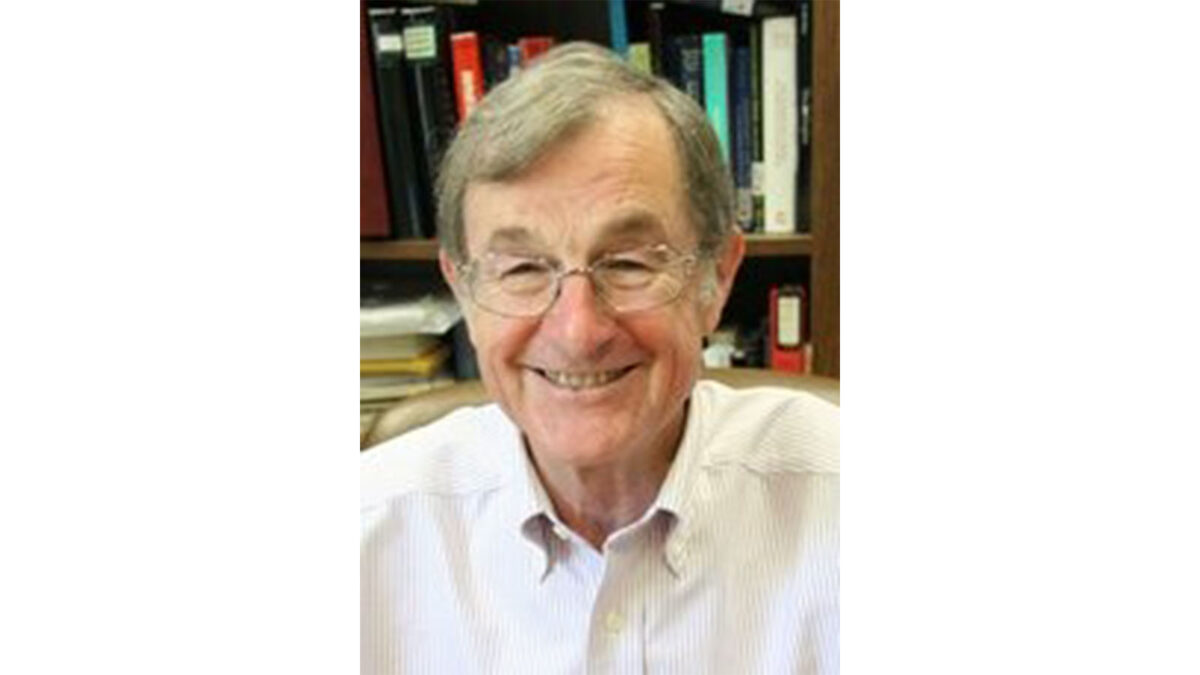
Fred E. C. Culick, the Caltech Hayman Professor of Mechanical Engineering and Professor of Jet Propulsion, Emeritus, passed away on 11 December 2023. He was 90 years old.
Culick earned undergraduate and graduate degrees from the Massachusetts Institute of Technology (MIT) in the late 1950s, and then studied physics and applied mathematics at the University of Glasgow in Scotland, supported by a Fulbright Fellowship, before spending a summer studying at Cambridge University in England.
After completing his doctorate from MIT in 1961, he began his association with Caltech as a research fellow in jet propulsion. Culick’s research focused on the dynamics of combustion chambers. He also served in advisory capacity at JPL, assisting with spacecraft engineering and design. In 1963, Culick joined the Caltech faculty as an assistant professor of jet propulsion.
In 1966, he was named associate professor at Caltech and published “Rotational axisymmetric mean flow and damping of acoustic waves in a solid propellant rocket” (AIAA Journal, 4[8] 1966, 1462–1464). This paper outlined what became the Taylor–Culick flow. In fluid dynamics the Taylor–Culick flow is named after Geoffrey Ingram Taylor from his discovery in 1956 that describes the axisymmetric flow inside a long slender cylinder with one end closed, supplied by a constant flow injection through the sidewall, and Culick who found a self-similar solution to the problem applied to solid-propellant rocket combustion. Five years later he was appointed full professor at Caltech, and in 1978 was named professor of applied physics and jet propulsion. By 1988 he became professor of mechanical engineering and jet propulsion, before he was named Hayman Professor and professor of jet propulsion in 1997. He retired from Caltech in 2004.
Outside of his academic research, Culick had an interest in the flight dynamics and history of aircraft. In the late 1970s, he co-founded a project through the AIAA Los Angeles Section to build two replicas of the Wright Brothers’ 1903 Wright Flyer. One of the replicas is on display at the FAA building in Los Angeles, while the other is displayed at the Flabob Airport in Jurupa Valley, CA. Additionally, he built the first complete one-sixth scale wind tunnel model of the “Flyer” and acquired data to explain the flight dynamics. Having earned a pilot’s license in 1966, Culick spent two weeks in 1978 flying throughout the United States, taking off and landing only once in each of the 48 contiguous states.
Culick joined AIAA in 1965, and became a Fellow in 1986. He was active in the Los Angeles Section and provided leadership in a number of section activities. In 1980 he was the recipient of the AIAA Pendray Aerospace Literature Award for “numerous outstanding contributions to the technical literature of combustion instability in solid rocket motors.” He was also recognized with a 2005 AIAA Sustained Service Award for “40 years of Sustained Service to AIAA, in the fields of aeronautics, flight mechanics, propulsion and rocketry.”
Culick served as a member of the AIAA Space Automation and Robotics Technical Committee (1992–1994), and he was a member of the AIAA History Committee from 2016 until his death. In 2001, in anticipation of the Centennial of Flight, Culick co-authored On Great White Wings: The Wright Brothers and the Race for Flight.




